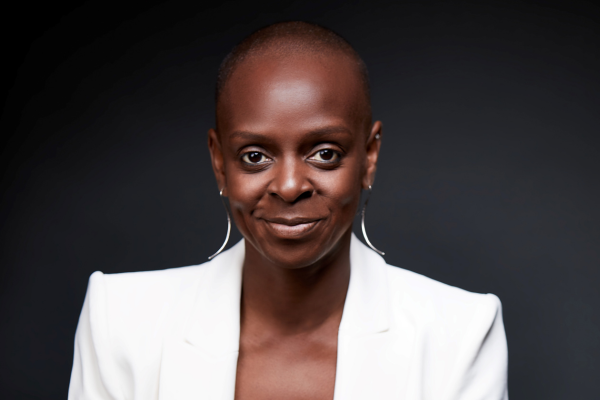Kemi Nekvapil is one of the world’s leading credentialled coaches for female executives and entrepreneurs, a bestselling author and a highly sought-after international speaker.
She has studied leadership and purpose at The Gross National Happiness Centre in Bhutan and trained with Dr Brené Brown to become a certified Dare to Lead™ facilitator, working with teams and organisations to create daring leaders and courageous cultures.
Courageous change is the theme for Futurespace 2024, the ACE New Zealand conference being held in October in Christchurch, and we are very excited to be opening our flagship annual event with a keynote from Kemi about “daring greatly”.
We asked Kemi about being courageous in the current climate and a key learning the audience will take from her session.

What is the relevance of daring greatly to the times in which we’re living?
“Dr Brené Brown coined the phrase ‘daring greatly’. The idea comes from Theodore Roosevelt’s quote that to dare greatly is to be ‘in the arena’.
“In the current global crisis, and there are so many different areas of crisis, to dare greatly is to be in the arena and that doesn’t necessarily mean being on the front lines. Sometimes daring greatly is giving a kind word to your neighbour or a team member. Daring greatly is different for every person, but it means showing up in our full humanity.”
This year’s Futurespace theme is courageous change. What does the term courageous mean to you?
“Using the term courageous means there’s going to be challenge; there’s going to be external or internal conflict or tensions and yet we still want to step into courage every single time.”
In your book Power: A Women’s Guide to Living and Leading Without Apology, you reveal how power built internally is stronger and more enduring than that bestowed externally. Does this apply to leaders within organisations?
“Leaders must lead with their humanity. This is incredibly courageous when we’re coming from a work culture that, in the past, has told us to not show any vulnerability, to do what needs to be done, and to create a level of distance between you and the people that you’re working with.
“Obviously, this doesn’t mean we share the most intimate details of our lives with the people that we work with every day. That is not necessarily courageous. But we all want to be led by humans. It takes courage to do the inner work to look at the areas where we give away our power and the areas where we are strong in our power, and to ask ourselves what we need to work on as a leader and as a human.”
How do you approach this when working with people as these things are easily said but can be very hard to do?
“It depends on the individual as there’s no mandated way of being, but it’s work. Consistent, sustained work. And that takes courage. There are no 21 steps. Once we get into the work of professional and personal development, the work never ends but the gift is that we get to be in the world as who we are and that is courage in and of itself.”
So, if leaders show their vulnerability at work by leading with humanity, does this allow their employees to bring their humanity to work?
“Yes. And vulnerability for a leader may be knowing that they can be really controlling or micromanage. For the leader to know where this comes from is highly beneficial for them and everyone they work with because none of us are perfect. But, if we know ourselves, we can be honest and courageous enough to recognise when we will go towards controlling mechanisms, such as in times of anxiety or fear, and then you can share that with your team.
“We build trust through courage.”
Is it harder to be courageous in this climate when times are uncertain and people may be fearful of what the future holds?
“People have always had to be courageous.
“When times are challenging, sometimes the courageous thing to do is to go towards the light, joy and kindness. We all live within a sphere of actual agency and the question might be: ‘What does courage look like for me in my life right now?’ Sometimes it’s staying home and looking after young children; it’s not on the front line with a picket. It’s individual. But, in the darkness, I’m very much an advocate of the need to keep finding the light within ourselves and with others because it’s fortifying.
“We have wars, financial crises, a climate crisis, and yet poets still write poems, musicians still make music, and artists still create art. We saw that in the pandemic. People were going towards creativity – baking, creating, writing. Joy and delight are important. They are what sustains us when challenging times hit.”
What is one learning the audience will walk away with from your session?
“Every leader in the room will have a deeper insight into who they are and how they can lead from that foundational place.”
Find out more
